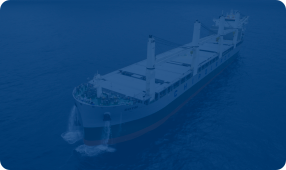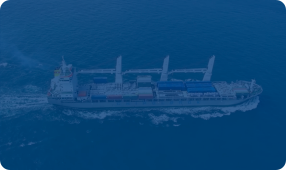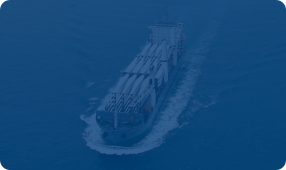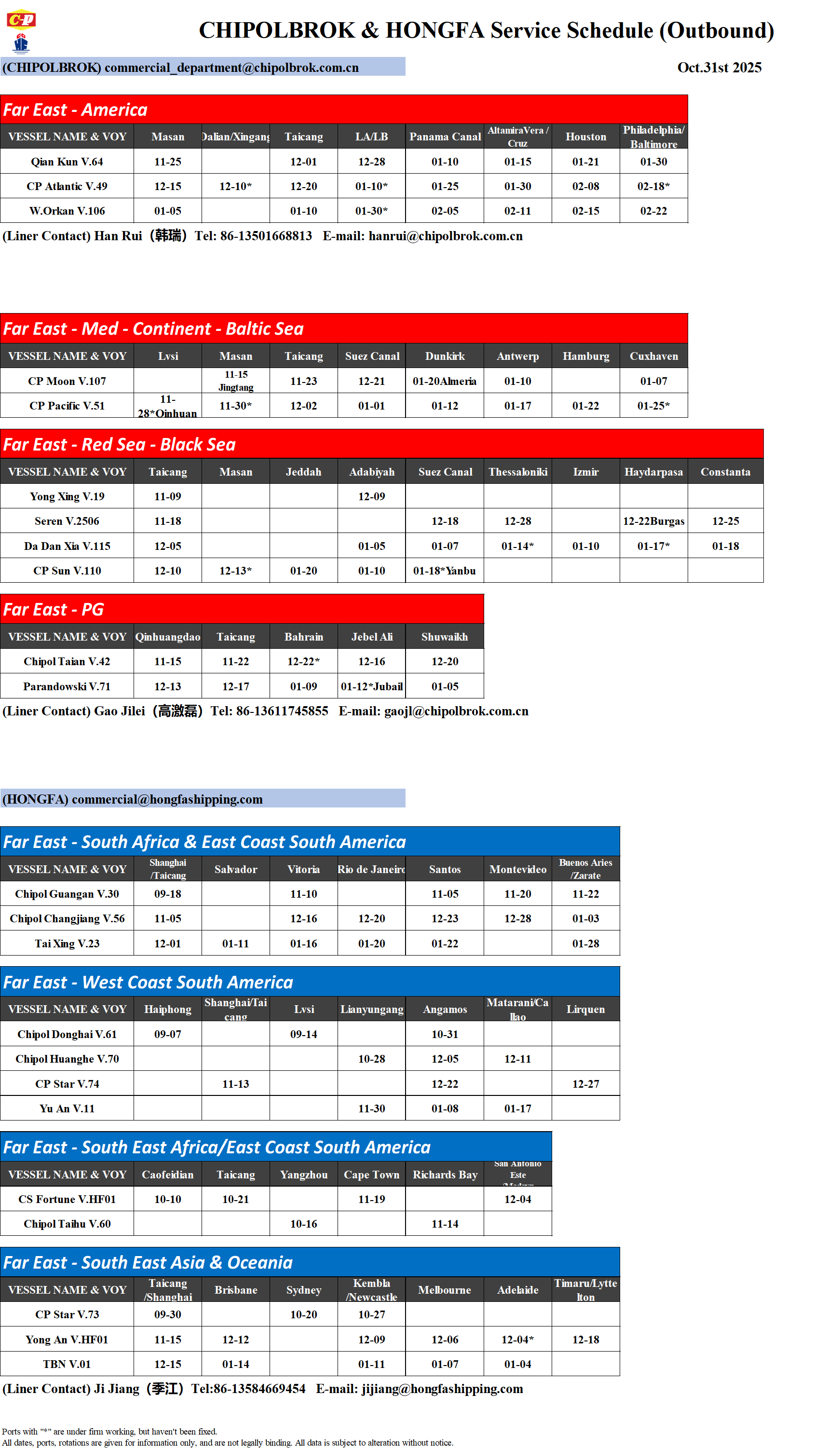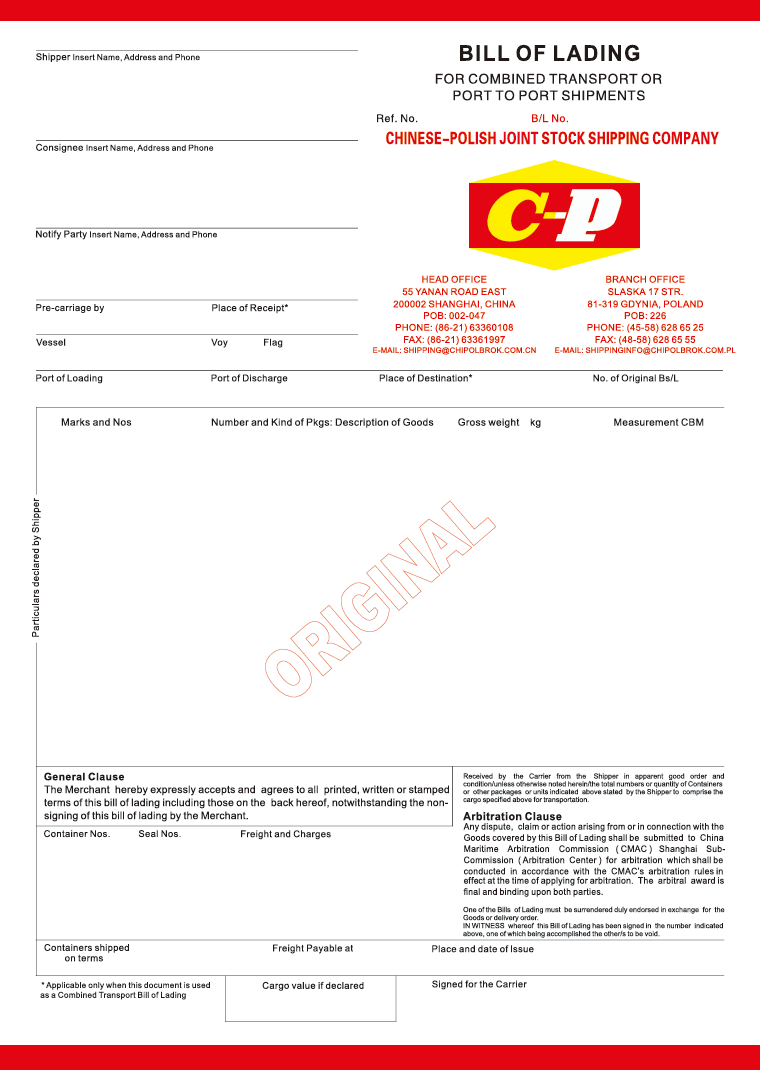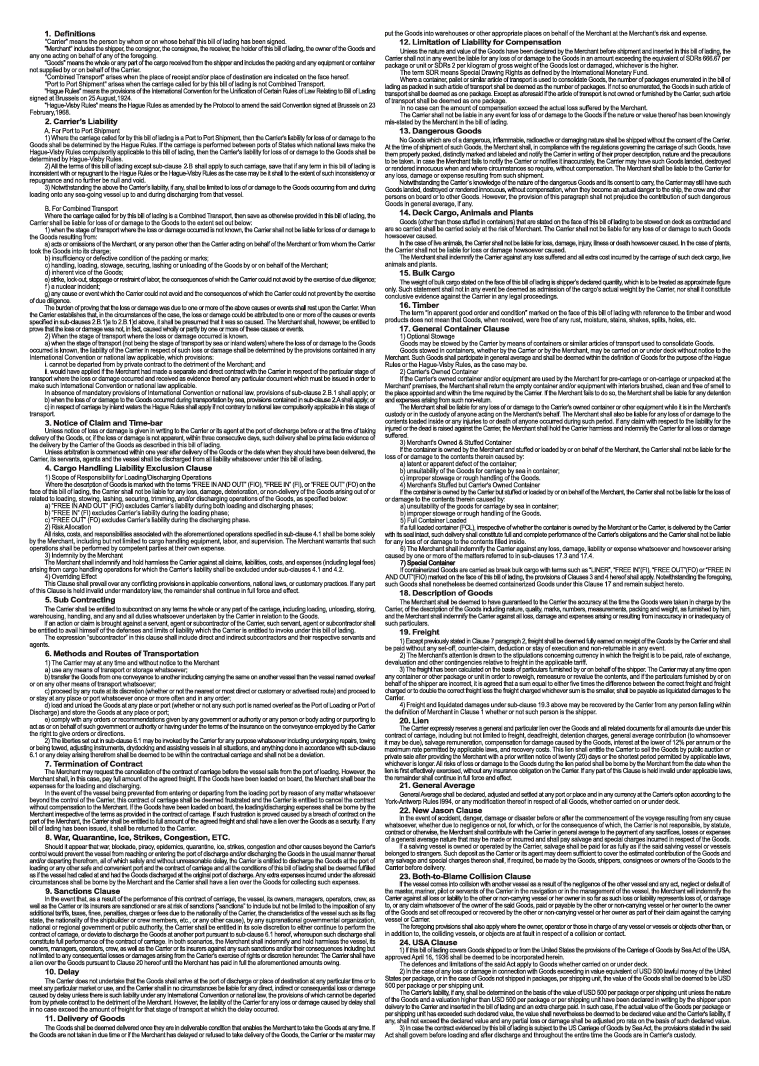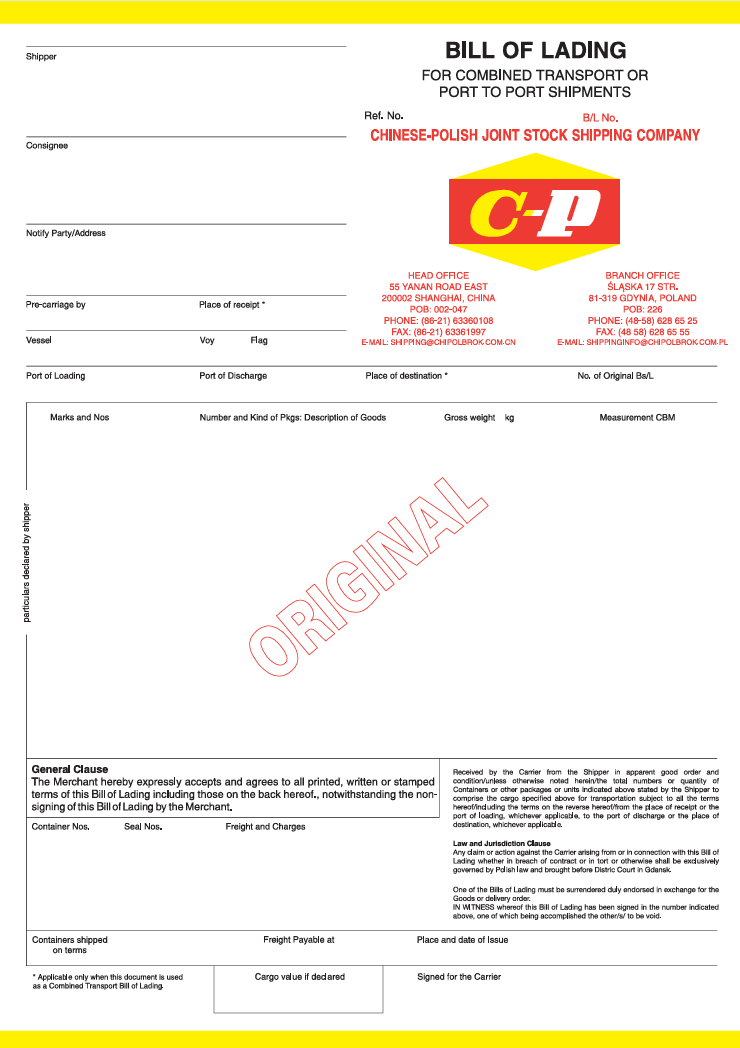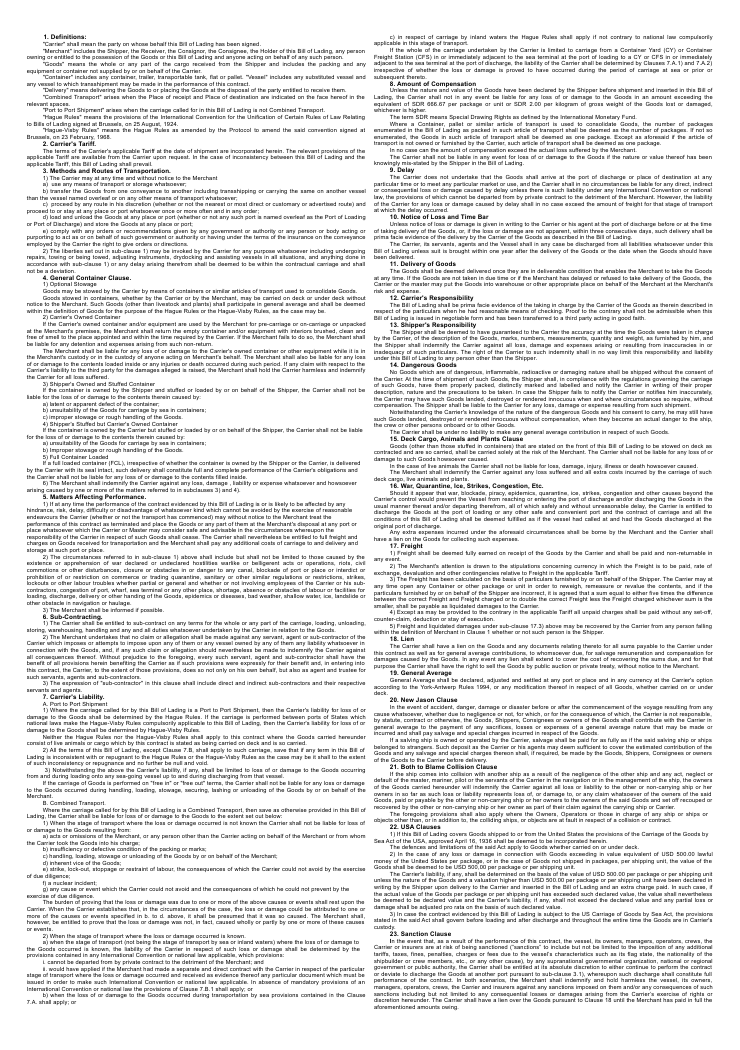资源中心
电子提单(模版)
附加关税条款
若因履行本运输合同,导致船舶、其所有人、管理人、经营人、船员以及承运人或其保险人受到制裁或面临制裁风险("制裁"包括但不限于因承运人国籍、船舶特征(如船旗国、造船国或船员国籍等)或任何其他原因,而被任何超国家政府组织、国家或地区政府或公共当局课以任何额外关税、税费、罚款、罚金、收费或费用),承运人有权自行酌情决定:继续履行运输合同,或根据本合同第6.1款的规定驶往其他港口卸下货物,此等卸货即构成运输合同的完全履行。在以上任一情况下,货方均须赔偿并使船舶、其所有人、管理人、经营人、船员以及承运人或其保险人免于承担任何此类制裁和/或由此产生的一切后果(包括但不限于因承运人根据本条款行使权利或酌情权而产生的任何间接损失或损害)。根据本合同第20条规定,在货方全额支付上述应付款项之前,承运人对货物享有留置权。
承运人条款
CHIPOLBROK & HONGFA SHIPPING Standard Terms and Conditions
1.Definitions
“Carrier” means the person by whom or on whose behalf this Bill of Lading has been signed. “Merchant” includes the Merchant, the shipper, the consignor, the consignee, the receiver, the holder of this Bill of Lading, any one owning or entitled to the possession of the Goods. “Goods” means the whole or any part of the Goods received from the shipper and includes the packing and any equipment or container or case not supplied by or on behalf of the Carrier.
“Carriage” means the whole or any part of the operations and services undertaken by the Carrier in respect of the Goods covered by this Bill of Lading.
“Sub- contractor” includes Carrier and operators of the Vessel or any other vessel (other than the Carrier), stevedores, terminal operators, warehousemen and any independent contractors employed by the Carrier in performance of the Carriage and any sub-contractor thereof.
“Hague Rules” means the provisions of the International Convention for the Unification of Certain Rules of Law Relating to Bill of Lading signed at Brussels on 25th August, 1924. “Hague-Visby Rules” means the Hague Rules as amended by the Protocol to amend the said Convention signed at Brussels on 23rd February, 1968.
2. Law and Jurisdiction
Except as otherwise provided specifically herein, any claim or action against the Carrier arising from or in connection with this Bill of Lading whether in breach of contract or in tort or otherwise shall be exclusively governed by the laws of the People’s Republic of China and be brought before the Shanghai Maritime Court or its court of appeal in the People’s Republic of China.
3. Carrier’s Liability and Responsibility
(1) Where the carriage called for by this Bill of Lading is a port-to-port shipment, then the Carrier’s liability for loss of or damage to the Goods shall be determined by the Hague Rules. If the carriage is performed between ports of States which national laws make the Hague-Visby Rules compulsorily applicable to this Bill of Lading, then the Carrier’s liability for loss of or damage to the Goods shall be determined by Hague-Visby Rules.
(2) All the terms of this Bill of Lading shall apply to such carriage, save that if any term in this Bill of Lading is inconsistent with or repugnant to the Hague Rules or the Hague-Visby Rules as the case maybe it shall to the extent of such inconsistency or repugnance and no further be null and void.
(3) The Carrier shall in no event be liable for any loss of or damage to or in connection with the Goods, whether caused by the Carrier's negligence or not, occurring before loading on board and/or after discharge from the Vessel, whether the Goods are awaiting shipment, landed or stored or put into craft, barge, lighter or otherwise whether belonging to the Carrier or not, or pending transshipment at any stage of the Carriage. When the Carrier arranges pre-carriage of the Goods from a place other than the vessel's port of loading or on-carriage of the Goods to a place other than the vessel's port of discharge, the Carrier shall contract as the Merchant's Agent only.
(4) In case loading and/or discharge are effected by the Merchant at his expense, the Carrier's responsibility shall, notwithstanding the preceding paragraph, commence when loading has been completed and/or cease when discharge has begun respectively, and shall be exonerated from any loss of or damage to or in connection with the Goods occurring during such loading and/or discharge, even if such loading and/or discharge are done with the assistance and/or advice of the Master/Vessel's officers/crew, who in such cases, are deemed to be an agent or employee of the Merchant.
4. Notice of Claim and Time-bar
Unless notice of loss or damage is given in writing to the Carrier or its agent at the Port of Discharge or place of delivery before or at the time of taking delivery of the Goods, or, if the loss or damage are not apparent, within seven consecutive days, such delivery shall be prima facie evidence of the delivery by the Carrier of the Goods as described in this Bill of Lading. The Carrier, its servants, agents and the vessel shall in any case be discharged from all liabilities whatsoever under this Bill of Lading unless suit is brought within one year after the delivery of the Goods or the date when the Goods should have been delivered.
5. Sub-contracting and Indemnity
(1) The Carrier shall be entitled to sub-contract at any time and on any terms whatsoever the whole or any part of the carriage, including liberty to further sub-contract.
(2) It is hereby expressly agreed that no servant or agent of the Carrier (including every independent contractor from time to time employed by the Carrier) shall in any circumstances whatsoever be under any liability whatsoever to the shipper, consignee or Carrier of the Goods or to any holder of this Bill of Lading for any loss, damage or delay of whatsoever kind arising or resulting directly or indirectly from any act, neglect or default on his part while acting in the course of or in connection with his employment and, without prejudice to the generality of the foregoing provisions of this clause, every exemption, limitation, condition and liberty herein contained and every right, exemption from liability, defense and immunity of whatsoever nature applicable to the Carrier or to which the Carrier is entitled hereunder shall also be available and shall extend to protect every such servant or agent of the Carrier acting as aforesaid and for the purpose of all the foregoing provisions of this clause the Carrier is or shall be deemed to be acting as agent or trustee on behalf of and for the benefit of all persons who are or might be his servants or agents from time to time (including independent contractors as aforesaid) and all such persons shall to this extent be or be deemed to be parties to the contract in or evidenced by this Bill of Lading.
(3) Servant or agent of the Carrier (including every independent contractor from time to time employed by the Carrier) are not entitled to waive any terms, exemptions, limitations contained herein unless authorized in writing by an officer or director of the Carrier itself to bind the Carrier.
6. Limitation of Liability
(1) When the Carrier is liable for compensation in respect of any loss of the Goods, such compensation shall be calculated on the basis of actual value of the Goods so lost, while that for the damage to the Goods shall be calculated on the basis of the difference between the values of the Goods before and after the damage, or on the basis of the expenses for the repair, whichever is lower. The actual value of the Goods shall be the value of the Goods at the time of shipment plus insurance and freight. From the actual value referred above, deduction shall be made, at the time of compensation, of the expenses that had been reduced or avoided as a result of the loss or damage occurred. In no event shall the Carrier be liable for any loss of profit or any consequential loss.
The reference on the face of the Bill of Lading to letters of credit, import licenses, sales contracts, invoices or order number and/or details of any contract to which the Carrier is not a party does not constitute a declaration of value.
(2) Notwithstanding the preceding paragraph, the Carrier shall not be liable for loss or damage in an amount exceeding equivalent of SDRs 666.67 per package or unit or SDRs 2 per kilogram of gross weight of the Goods lost or damaged, whichever is the higher, or in case of the Goods not shipped in packages, per customary freight unit, unless the value of the Goods higher than this amount has been declared in writing by the Merchant before shipment of the Goods and inserted in this Bill of Lading together with nature thereof and the additional charges as required have been prepaid in addition to freight. This declaration, if embodied in the Bill of Lading, shall be prima facie evidence, but shall not be conclusive on the Carrier.
The term SDR mentioned in the preceding paragraph is the Special Drawing Rights as defined by the International Monetary Fund.
(3) Where the Goods has been packed into container(s) or unitized into similar article(s) of transport by or on behalf of the Merchant, and when the number of packages or units packed into container(s) or unitized into similar article(s) of transport is not enumerated on the face hereof, each container or similar article including the entire contents thereof shall be considered as one package for the purpose of the application of the limitation of liability provided for herein.
(4) In no case can the amount of compensation exceed the actual loss suffered by the Merchant. The Carrier shall not be liable in any event for loss of or damage to the Goods if the nature or value thereof has been misstated by the Merchant in the Bill of Lading.
7. Methods and Routes of Transportation
(1) Unless otherwise mutually agreed and specified in the applicable agreement, the Carrier may at any time and without notice to the Merchant
(a) use any means of transport or storage whatsoever;
(b) transfer the Goods from one conveyance to another, including but not limited to transshipping or carrying them on another vessel than that named on the face hereof;
(c) proceed by any route in the Carrier's absolute discretion (whether or not such route is the nearest or most direct or customary route from the Port of Loading or Place of Receipt to the Port of Discharge or Place of Delivery), at any speed, and proceed to or stay at any place or port whatsoever, once or more often and in any order;
(d) load or unload the Goods at any place or port (whether or not such port is named overleaf as the Port of Loading or Port of Discharging) and store the Goods temporarily at any place or port whatsoever, once or more often and in any order;
(e) comply with any orders or recommendations given by any government or authority or any person or body acting on behalf of such government or authority or having the right to give orders or directions under the terms of the insurance on the conveyance employed by the Carrier;
(f) Permit the vessel to proceed, to tow or be towed, or to be dry-docked;
(2) Anything done in accordance with Clause 8 (1) or any delay arising therefrom shall be deemed to be within the contractual Carriage and shall not be a deviation.
(3) Any deviation in saving or attempting to save life or property at sea shall be deemed to be within the contractual carriage and shall not be deemed as a breach of the contract of carriage.
8. Delay
(1) Unless expressly agreed and inserted in this Bill of Lading, the Carrier dose not undertake that the Goods shall arrive at the Port of Discharge or place of destination at any particular time or to meet any particular market or use, and the Carrier shall in no circumstances be liable for any direct, indirect or consequential loss or damage caused by delay unless these are caused by intent or recklessness, with the knowledge that damage would probably result, of the Carrier or its servants or agents.
(2) If notwithstanding the foregoing the Carrier is held responsible for the consequences of any delay, the liability of the Carrier for any loss or damage caused by delay shall in no case exceed the amount of freight for that stage of transport at which the delay occurred.
(3) In so far as dates are expressly agreed upon between the Merchant and the Carrier, such agreed dates are made on the basis that no unforeseen circumstances occur and are further subject to all going well and weather permitting.
9. War, Quarantine, Ice, Strikes, Congestion, Infectious or Contagious Diseases, ETC.
If it appears that war, blockade, piracy, epidemics, quarantine, ice, strikes, congestion, infectious or contagious disease and other causes beyond the Carrier’s control would prevent the vessel from reaching or entering the Port of Discharge and/or discharging the Goods in the usual manner thereat and/or departing therefrom, all of which safely and without unreasonable delay, the Carrier is entitled to discharge the Goods at the port of loading or any other safe and convenient port at Carrier’s discretion and the contract of carriage and all the conditions of this Bill of Lading shall be deemed fulfilled as if the vessel had called at and had the Goods discharged at the original Port of Discharge. Any extra expenses incurred under the aforesaid circumstances shall be borne by the Merchant and the Carrier shall have a lien on the Goods for collecting such expenses.
10. Inspection of Goods
The Carrier or any person to whom the Carrier has sub-contracted the Carriage or any person authorized by the Carrier shall be entitled, but under no obligation, to open any Container or package at any time and to inspect the Goods. If, by order of the authorities at any place, a Container or package has to be opened for the Goods to be inspected, the Carrier will not be liable for any loss or damage incurred as a result of such opening, unpacking, inspection or repacking. The Carrier shall be entitled to recover the costs of such opening, unpacking, inspection and repacking from the Merchant.
11. Merchant’s Warrant
(1) The Merchant warrants to the Carrier that particulars furnished by or on behalf of the Merchant relating to the Goods as set forth on the front of this Bill of Lading are adequate and correct, the Carrier shall be at no responsibility whatsoever in respect of such description and particulars. The Merchant also warrants that the Goods are lawful Goods and contain no contraband.
(2) The Merchant warrants further that the Goods and the Carriage thereof comply with and do not violate any applicable embargo or similar regulations.
(3) The Merchant shall be liable for loss of or damage to the vessel and/or Goods arising or resulting from inaccuracies in stating the description, quantity, weight, measurement or contents of the Goods and shall indemnify the Carrier for the costs and expenses incurred in connection with weighing, measuring and checking such Goods.
(4) If the description of the Goods in this Bill of Lading or in any document or certificate furnished to the Carrier by or on behalf of the Merchant shall prove to have been inaccurate, incorrect or misleading in any respect, the Merchant shall pay for any actual losses suffered by the Carrier.
12. Loading, Discharging, Delivery and Indemnify
(1) Loading and discharging shall be affected by the Carrier at his expense unless otherwise specifically shown herein. However, any expense, costs, dues and other charges which incur before loading and after discharging of the Goods shall be borne by the Merchant.
(2) Loading and discharging may commence without prior notice.
(3) The Merchant or his Agent shall tender the Goods when the vessel is ready to load and as fast as the vessel can receive, including, if required by the Carrier, outside ordinary working hours notwithstanding any custom of the port. If the Merchant or his Agent fails to tender the Goods when the Vessel is ready to load or fails to load as fast as the Vessel can receive the Goods, the Carrier shall be relieved of any obligation to load such Goods, the Vessel shall be entitled to leave the port without further notice and the Merchant shall be liable to the Carrier for dead freight and/or detention, any overtime charges, losses, costs and expenses incurred by the Carrier.
(4) The Merchant or his Agent shall take delivery of the Goods as fast as the vessel can discharge, including, if required by the Carrier, outside ordinary working hours notwithstanding any custom of the port. If the Merchant or his Agent fails to take delivery of the Goods, the Carrier’s discharging of the Goods shall be deemed fulfillment of the contract of carriage. The Merchant shall be liable to the Carrier for any overtime charges, losses, costs and expenses incurred by the Carrier and in addition the Merchant shall be liable to pay the Carrier detention for the period of any delay. If the Goods are not taken in due time or if the Merchant fails to take delivery of the Goods as fast as the vessel can discharge, the Carrier or the master may put the Goods into warehouses or other appropriate places on behalf of the Merchant at the Merchant’s risk and expense. All delivery takes place at the end of the vessel’s hook unless otherwise specified.
(5) The Merchant shall comply with all regulations or requirements of customs, port and other Authorities, and shall bear and pay all duties, taxes, fines, imposts, expenses or losses (including the full return Freight for the Goods if returned, or if on-carried, the full Freight from the Port of Discharge or the Place of Delivery nominated herein to the amended Port of Discharge or the amended Place of Delivery) incurred and/or sustained by reason of any failure to so comply, or by reason of any illegal, incorrect or insufficient marking, numbering, or addressing of the Goods, and shall indemnify the Carrier in respect thereof.
13. Dangerous Goods
No Goods which are or may become dangerous, inflammable, radioactive or damaging nature, or which are or may become liable to damage any property whatsoever, shall be shipped without the consent of the Carrier. At the time of shipment of such Goods, the Merchant shall, in compliance with the laws and regulations governing the carriage of such Goods, have them properly packed, distinctly marked and labeled and notify the Carrier in writing of their proper description, nature and the precautions to be taken. In case the Merchant fails to notify the Carrier or notifies him inaccurately, the Carrier may have such Goods landed, destroyed or rendered innocuous when and where circumstances so require, without compensation to the Merchant. Whether or not the Merchant was aware of the nature of the Goods, the Merchant shall indemnify the Carrier against all claims, losses, damages or expenses arising in consequence of the Carriage of such Goods. Notwithstanding the Carrier’s knowledge of the nature of the dangerous Goods and his consent to carry, he may still have such Goods landed, destroyed or rendered innocuous, without compensation to the Merchant, when they become an actual danger to the ship, the crew and other persons or to other Goods. However, nothing contained in this Clause shall deprive the Carrier of any of its rights provided for elsewhere.
14. Deck Cargo, Animals and Plants
Goods (other than those stuffed in containers) that are stated on the face of this bill of lading to bestowed on deck as contracted and are so carried shall be carried solely at the risk of Merchant. The Carrier shall not liable for any loss of or damage to such goods whatsoever and howsoever caused.
In the case of live animals, the Carrier shall not be liable for loss, damage, injury, illness or death howsoever caused. In the case of plants, the Carrier shall not be liable for loss or damage howsoever caused.
The Merchant shall indemnify the Carrier against any loss suffered and all extra costs incurred for any reason whatsoever in connection with the carriage of such deck cargo, live animals and plants.
15. Special Goods
(1) Bulk Cargo
If the Carrier has no reasonable means to check the weight of bulk Goods actually received, he may make a reservation on the Bill of Lading and therefore the weight previously printed on the Bill of Lading shall be deemed for reference only and shall not constitute any evidence against the Carrier.
(2) Lumber and Timber
Any statement in this Bill of Lading to the effect that the lumber, timber and products thereof has been shipped “in apparent good order and condition” does not involve any admission by the Carrier as to the absence of stains, shakes, splits, holes or broken pieces, for which the Carrier accepts no responsibility.
(3) Iron and Steel The iron, steel and metal Goods which are at the time of shipment in the ordinary external condition as to rust, corrosion, oxidation, moisture, scratch, dent or bend are admitted as being in apparent good order and condition by the Carrier and the Merchant. The terms "apparent good order and condition" on the face hereof does not mean any admission by the Carrier as to the absence of such ordinary rust, corrosion, oxidation, moisture, scratch, dent or bend. In case of iron and steel, angles, bars, channels, etc. shipped loose or in bundles, the Carrier shall not be responsible for correct delivery, and all expenses incurred at the Port of Discharge consequent upon insufficient securing or marking shall be paid by the Merchant unless: (a) every pieces is distinctly and permanently marked with oil paint; (b) every bundle is securely fastened, distinctly and permanently marked with oil-paint and metal-tagged, so that each piece or bundle can be distinguished at the Port of Discharge.
(4) Refrigerated Goods
Before loading Goods in any insulated space, the Carrier shall, in addition to the Class Certificate obtain the certificate signed by the Classification Society’s surveyor or other competent person, stating that such insulated space and refrigerating machinery are in the opinion of the surveyor or other competent person fit and safe for the carriage and preservation of refrigerated Goods. The aforesaid certificate shall be conclusive evidence against the Merchant.
The Merchant has to take delivery of refrigerated Goods as soon as the vessel is ready to deliver, otherwise the Carrier is entitled to have the Goods landed ashore at the Merchant’s risk and expense.
16. General Container Clause
1) Optional Stowage
Goods may be stowed by the Carrier by means of containers or similar articles of transport used to consolidate Goods.
Goods stowed in containers, whether by the Carrier or by the Merchant, may be carried on deck or under deck without notice to the Merchant. Such Goods (other than livestock and plants) shall participate in general average and shall be deemed within the definition of Goods for the purpose of the Hague Rules or the Hague-Visby Rules, as the case may be.
2) Carrier’s Owned Container
If the Carrier’s owned container and/or equipment are used by the Merchant for pre-carriage or on-carriage or unpacked at the Merchant’s premises, the Merchant shall return the empty container and/or equipment with interiors brushed, clean and free of smell to the place appointed and within the time required by the Carrier. If the Merchant fails to do so, they shall be liable for any detention and expenses arising from such non-return.
The Merchant shall be liable for any loss of damage to the Carrier’s owned container or other equipment while it is in the Merchant’s custody or in the custody of anyone acting on Merchant’s behalf. The Merchant shall also be liable for any loss of or damage to the contents loaded inside or any injuries to or death of anyone occurred during such period. If any claim with respect to the liability for the injured or the dead is raised against the Carrier, the Merchant shall hold the Carrier harmless and indemnify the Carrier for all loss or damage suffered.
3) Merchant’s Owned or Stuffed Container
If the container is owned by the Shipper and stuffed or loaded by or on behalf of the Shipper, the Carrier shall not be liable for the loss of or damage to the contents therein caused by:
A. latent or apparent defect of the container;
B. unsuitability of the Goods for carriage by sea in container;
C. improper lashing, securing, stowage or rough handling of the Goods.
4) Shipper’s Stuffed but Carrier’s Owned Container
If the container is owned by the Carrier but stuffed or loaded by or on behalf of Shipper, the Carrier shall not be liable for the loss of or damage to contents therein caused by:
A. unsuitability of the Goods for carriage by sea in container;
B. improper lashing, securing, stowage or rough handling of the Goods.
5) Full Container Loaded
If a full loaded container (FCL), irrespective of whether the container is owned by the Shipper or the Carrier, is delivered by the Carrier with its seal intact, such delivery shall constitute full and complete performance of the Carrier’s obligations and the Carrier shall not be liable for any loss of or damage to the contents filled inside.
6) The Merchant shall indemnify the Carrier against any loss, damage, liability or expense whatsoever and howsoever arising caused by one or more of the matters referred to in sub-clauses 3) and 4) above.
17. Freight, Dead freight and Charges
(1) Freight shall be deemed fully earned on receipt of the Goods by the Carrier and shall be paid and non-returnable in any event.
(2) Payment of the freight is to be made in accordance with the applicable agreement, in particular with respect to the currency in which the freight is to be paid, rate of exchange, devaluation and other contingencies relative to freight.
(3) The freight has been calculated on the basis of particulars furnished by or on behalf of the Merchant. The Carrier is entitled in case of incorrect declaration of the Goods nature, contents, quantity, weights, measurements or value of the Goods to claim the dead freight, detention/demurrage and all other losses and damages, which might result from above. For the purpose of ascertaining the actual facts, the Carrier shall have the right to open any container of other package and to have the Goods inspected and its contents, weight, measurement or value verified, and the Merchant agrees to pay all expenses incurred by the Carrier in ascertaining said particulars.
(4) If the Merchant fails to pay the freight, demurrage, detention and/or other charge whatsoever becomes due and owing, the Merchant shall be liable for all costs and consequences arising out of delay, in particular interest which accrue until payment.
(5) In the event that the Merchant cancels or fails to ship all or any portion of the booked Goods for whatever reason, the Carrier shall be entitled to claim the damages and/or dead freight in respect of the Goods not loaded from the Merchant and such damages shall be considered liquidated damages and quantified on the basis of the applicable freight rate.
18. Lien
The Carrier shall have a lien on the Goods and any documents relating therto, which shall survive delivery, for all freight, dead freight, demurrage, detention, storage, general average, salvage, damages, loss, charges, expenses and any other sums whatsoever payable by or chargeable to or for the account of the Merchant under this Bill of Lading and any other contracts of carriage with the Merchant whatsoever, whether they may be relevant to this Bill of Lading or not, and the cost and expenses of recovering the same, and may sell the Goods privately or by public auction without notice to the Merchant. If on sale of the Goods, the proceeds fail to cover the amount due and the cost and expenses incurred, the Carrier shall be entitled to recover the deficit from the Merchant.
19. General Average, New Jason Clause
1) General Average shall be declared, adjusted and settled at any port or place and in any currency at the Carrier’s option according to the York-Antwerp Rules 1994, or any modification thereof in respect of all Goods, whether carried on or under deck. Such deposit as the Carrier or his agent may deem sufficient to cover the estimated contribution of the Goods and any salvage and special charges thereon shall, if required, be made by the Goods, shippers, consignees or Carrier of the Goods to the Carrier before delivery.
2) In the event of accident, danger, damage or disaster before or after the commencement of the voyage resulting from any cause whatsoever, whether due to negligence or not, for which, or for the consequence of which, the Carrier is not responsible, by statute, contract or otherwise, the Merchant shall contribute with the Carrier in general average to the payment of any sacrifices, losses or expenses of a general average nature that may be made or incurred and shall pay salvage and special charges incurred in respect of the Goods. If a salving vessel is owned or operated by the Carrier, salvage shall be paid for as fully as if the said salving vessel or vessels belonged to strangers. Such deposit as the Carrier or his agents may deem sufficient to cover the estimated contribution of the Goods and any salvage and special charges thereon shall, if required, be made by the Goods, Shippers, Consignees or Carrier of the Goods to the Carrier before delivery.
20. Both-to-Blame Collision Clause
If the vessel comes into collision with another vessel as a result of the negligence of the other vessel and any act, neglect or default of the master, mariner, pilot or servants of the Carrier in the navigation or in the management of the vessel, the Merchant will indemnify the Carrier against all loss or liability to the other or non-carrying vessel or her Carrier in so far as such loss or liability represents loss of, or damage to, or any claim whatsoever of the Carrier of the said Goods, paid or payable by the other or non-carrying vessel or her Carrier to the Carrier of said Goods and set-off, recouped or recovered by the other or non-carrying vessel or her Carrier as part of his claim against the carrying vessel or Carrier.
The foregoing provisions shall also apply where the Carrier, operator or those in charge of any vessel or vessels or objects other than, or in addition to, the colliding vessels, or objects are at fault in respect of a collision or contact.
21. USA Clause
1) If this Bill of Lading covers Goods shipped to or from the United States the provisions of the Carriage of Goods by Sea Act of the USA, approved April 16, 1936 shall be deemed to be incorporated herein.
The defenses and limitations of the said Act apply to Goods whether carried on or under deck.
2) In the case of any loss or damage in connection with Goods exceeding in value equivalent of USD500.00 lawful money of the United Sates per package, or in the case of Goods not shipped in packages, per shipping unit, the value of the Goods shall be deemed to be USD500.00 per package or per shipping unit.
The Carrier’s liability, if any, shall be determined on the basis of the value of USD500.00 per package or per shipping unit unless the nature of the Goods and a valuation higher than USD500.00 per package or per shipping unit have been declared in writing by the Merchant upon delivery to the Carrier and inserted in the Bill of Lading and an extra charge paid. In such case, if the actual value of the Goods per package or per shipping unit has exceeded such declared value, the value shall nevertheless be deemed to be declared value and the Carrier’s liability, if any, shall not exceed the declared value and any partial loss or damage shall be adjusted pro rata on the basis of such declared value.
3) In case the contract evidenced by this Bill of Lading is subject to the US Carriage of Goods by Sea Act, the provisions stated in the said Act shall govern before loading and after discharge and throughout the entire time the Goods are in Carrier’s custody.
22. Infectious or Contagious Diseases Clause
(1) For the purposes of this Clause, the words:
“Disease” means a highly infectious or contagious disease that is seriously harmful to humans.
“Affected Area” means any port or place where there is a risk of exposure to the Vessel, crew or other persons on board to the Disease and/or to a risk of quarantine or other restrictions being imposed in connection with the Disease.
(2) At any time before loading commences, the Carrier may give notice to the Merchant cancelling this contract of carriage or may refuse to perform such part of it as will require the Vessel to enter or remain at an Affected Area;
(3) If loading has commenced, the Carrier may notify the Merchant that the Vessel will leave with or without cargo on board,
(4) The Carrier shall not be obliged to sign, and the Merchant shall not require signing of, bills of lading, waybills or other documents evidencing contracts of the carriage for any Affected Areas.
(5) The Carrier shall endeavor to take such reasonable measures in relation to the Disease as may from time to time be recommended by the World Health Organization. Any additional costs, expenses or liabilities whatsoever arising out of the Vessel visiting or having visited an Affected Area, including but not limited to screening, cleaning, fumigating and/or quarantining the Vessel and its crew, shall be for the Merchant’s account. Any time lost counts as detention a/o demurrage.
(6) The Vessel shall have liberty to comply with all orders, directions, recommendations or advice of competent authorities and/or the Flag State of the Vessel in respect of arrival, routes, ports of call, destinations, discharge of cargo, delivery or in any other respect whatsoever relating to issues arising as a result of the Vessel being or having been ordered to an Affected Area.
(7) If in compliance with this Clause and/or Clause 9 anything is done or not done, such shall not be deemed a deviation but shall be considered as due fulfilment of this Booking Note.
23. Carrier, Operator, vessel-based fines/fees/sanctions clause
In the event that any governmental authority and/or regulatory body, whether local or national, at any point in time prior to or following the execution of the sea carriage agreement, levies or intends to levy any penalty, fine, fee, or sanction against the Carrier, Operator, or/and vessel Owner due to characteristics of the vessel, its flag state, country of origin, construction place, or any other attribute related to Carrier, Operator, Owner, or vessel, then unless chrts at their option agree to pay such charges on an open book basis, either party shall have the right to terminate the shipment.
使用条款
法律声明
中波轮船股份公司官方网站(链接地址:www.chipolbrok.com.cn 以下简称“本网站”)由中波轮船股份公司(以下简称为“中波轮船股份公司”或“我司”)创设。任何人进入、浏览和使用本网站即承认已阅读、理解并同意受本声明约束,包括同意以下适用法律与争议解决内容,并遵守所有适用的法律和法规。
权利声明
本网站的域名、资料、信息、版面设计、图案、文字、流程、声音、程序及其他内容的所有权、著作权及其他权利由我司所享有并予以保留,此种权利受到《中华人民共和国民法典》、《中华人民共和国著作权法》、《中华人民共和国反不正当竞争法》及其他适用的法律、法规、规范性法律文件及相关国际条约的保护。对上述权利的侵犯将导致承担民事、行政或刑事责任,我司均保留追究法律责任的权利。
域名与商标声明
chipolbrok.com.cn的域名为中波轮船股份公司所有。未经中波轮船股份公司书面授权,任何单位或个人不得使用。
本网站所提及的公司和产品的名称和/或此处包含的第三方商标、商品名称和徽标可能是它们各自所有者的商标。
第三方托管服务
中波轮船股份公司与一个或多个第三方签订合同,维护和托管中波轮船股份公司的网站。因此,用户提交的任何信息,包括个人识别信息,将被放置并存储在由第三方维护的计算机服务器上。用户对本网站的使用以及向本网站提供的任何信息、内容或数据构成用户对此类信息的确认,内容或数据可以通过并存储在中波轮船股份公司无法控制的服务器中,并且可以由此类站点的管理员和其他能够访问中波轮船股份公司服务器或存储文件的用户访问。用户同意,中波轮船股份公司对因此类传递或储存而导致或与之相关的任何披露,无论是授权的还是未授权的,均不承担任何责任。
其他网站的链接
中波轮船股份公司对用户通过本网站的链接而进入其他网站不承担任何责任。当用户通过链接进入其他网站时,用户已充分理解这些网站与中波轮船股份公司是无关的,并且也不在中波轮船股份公司的控制范围内。另外,本网站对其他网站的链接本身并不表示我司认可或承担其他网站内容或使用上的责任。用户应谨慎地进入其他网站。
免责条款
对本网站的内容和通过本网站提供、宣传或链接的第三方内容,我司已尽最大努力予以审核,但不提供任何形式的明示的或默示的关于内容的正确性、及时性、有效性、稳定性、可用性、不侵犯他人权利等方面的保证或承诺;不保证服务器的稳定性,不保证您任何时候均可浏览、阅读、复制、使用本网站;不保证网站内容所包含的文字、图形、材料、链接、说明、陈述或其它事项的准确性或完整性,也不保证本网站的内容不存在打印、复制及其他输入方面的错误。我司可随时更改本网站内容,无须另作通知,但并不保证在内容变化时及时更新,也不保证在更新时通知您。
本网站中所包含的内容,尤其是关于可能的或预测的未来表现、成本、股利、收入、生产水平或效率、价格、我司的发展、工业增长或其它趋势,以及涉及合并的协同效益或公司任何期待获得的收入的内容都是前瞻性的,从而有一定的风险和不确定性,我司不保证该等前瞻性内容与最终实际结果一致。任何使用本网站内容的人士已充分了解并同意完全承担下述风险:由于各种因素,实际的结果和发展可能和上述内容所表达或暗示的有很大差异。
在任何情况下,对于因使用本网站内容或无法进入本网站而导致的任何直接的、间接的、附带的、给第三人造成的损失(包括但不限于利润损失、信息数据丢失、财产毁坏等损失),我司均不承担法律责任。
本网站转载的相关文章、资料中表述或暗示的观点不代表我司的观点。
本网站所提供的信息,若在某地区使用或分发时会违反该地区的法律或规定,则不得在该地区使用或分发本网站信息。
本网站遵循互利互惠的原则进行内容合作。所转载的信息都已经过版权所有者的口头或书面的许可,如有遗漏,请与我司联系并提供相应的证明资料。
保护用户隐私权
我司尊重广大用户的隐私,未经用户的同意,我司不搜集用户的资料。对于因服务的需要而掌握的用户的电子邮件、信息和地址,我司将采取合理的安全手段予以保护,除非根据法律或行政、司法机关的强制性要求,非经用户允许,我司不向任何第三方提供。
如果本隐私政策有任何变更,我司将在此发布更新的隐私政策。请定期访问本页面,查看本隐私政策是否有任何更新或变更。
Cookies
按照《通用数据保护条例》(以下简称“GDPR”)的要求,中波轮船股份公司通过添加更多详细信息来更新Cookies策略。中波轮船股份公司主要使用Cookies进行统计分析,提高本网站的用户友好性和可用性,根据用户的兴趣定制内容,并参与社交媒体。通过访问本网站,用户同意中波轮船股份公司和第三方使用Cookies,如隐私保护和Cookies政策所述。
以下是中波轮船股份公司从Cookies收集信息的清单:
1)通过使用统计组件来记录网站访问量;
2)存储语言版本信息,以确保当用户进行第二次访问时,本网站显示正确的语言;
如果用户不再希望在自己的计算机上存储Cookies,则可以删除它们。然而,请注意,本网站的高质量服务可能因此而降低。请参考浏览器的帮助指南以获得进一步的指导。
适用法律与争议解决
由于本网站或本网站的任何内容(包括上述条款)而引起的或与之有关一切诉讼或争议均应适用中华人民共和国法律,并应由我司所在地有管辖权的法院管辖。

